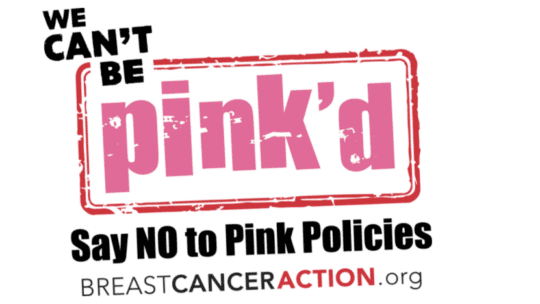
From Black History Month in February and Women’s History Month in March to LGBTQIA Pride in June and Breast Cancer Awareness Month this month, awareness months draw attention to health conditions, cultural history and other causes.
While intentions may be good, brands that don’t execute awareness efforts well may come across as tone-deaf or worse, opportunistic, especially if the cause and brand don’t naturally align.
Even more challenging to overcome are empty awareness statements. In 2002, Breast Cancer Action, a U.S.-based grassroots education and activist organization, coined the term pinkwashing to describe companies that claim to care about breast cancer, while simultaneously producing or selling products linked to the disease. Similarly, the term political pinkwashing connotes a public official claiming to care about breast cancer without supporting policy changes that help people living with breast cancer.
The organization, again in 2002, responded with Think Before You Pink, an annual campaign that urges companies' breast cancer fundraising to be transparent and accountable. In addition, it encourages consumers to ask critical questions about pink ribbon promotions.
We spoke with Jayla Burton, program officer at Breast Cancer Action, about this year’s campaign, “We Can’t Be Pink’d,” empty awareness and what brands and other organizations should do this month.
Responses have been edited for length.
PRNEWS: What was the genesis of the annual Think Before You Pink campaign?
Burton: Think Before You Pink launched in response to the growing concern about the overwhelming number of pink ribbon products and promotions on the market.
We have led the call to move past empty awareness that fails to address and end the breast cancer epidemic. Companies, nonprofits and government agencies use pink ribbons as a marketing ploy and a distraction that take valuable resources away from the meaningful action needed to address this public health crisis and social justice issue.
The 2020 campaign coins the term pink policies, which are political pinkwashing in action. They are policies, or a lack of policies, that fail to protect people living with breast cancer and increase breast cancer risk for all people, especially for women, people of color and low-income people.
PRNEWS: What is empty awareness, and what should organizations do to move beyond it?
Burton: Empty awareness is the focus on awareness when what we need is action to address and end this devastating disease. When corporations, mega-nonprofits, and government agencies choose campaigns that focus on awareness, they perpetuate careless and uncritical approaches that we see all too commonly with breast cancer.
Awareness will not result in fewer deaths. What we need are actionable steps toward true prevention.
Empty awareness looks like the Presidential Proclamation put out on October 1. The Administration claims to care about breast cancer, and even boasted about its crusade to eradicate breast cancer, but declaring October “Breast Cancer Awareness Month” does nothing to stop the breast cancer epidemic.
In fact, the focus on awareness detracts from the policy changes and resources needed to take on the breast cancer crisis.
Despite having quite possibly the greatest means to go beyond awareness and enact meaningful policy change, the administration physically turns the White House pink and puts out an empty proclamation about awareness, all while supporting policies that increase the risk of breast cancer by rolling back regulations and streamlining profit-oriented policies that favor industry, not patients.
PRNEWS: What is Breast Cancer Action’s response to this?
Burton: Political pinkwashing and pink policies do not stop at the White House. In our 2020 Think Before You Pink campaign, “We Can’t Be Pink’d: Say NO to Pink Policies,” we are calling out four federal agencies: the Environmental Protection Agency (EPA), the Food and Drug Administration (FDA), the National Cancer Institute (NCI) and the Department of Justice (DOJ).
To go beyond empty awareness and pink policies, the four agencies we are calling out could make the following immediate changes: immediately stop all environmental rollbacks in process at the EPA, strengthen safety requirements and transparency for drug and devices regulated through the FDA, acknowledge the connections between environmental exposures and breast cancer through the National Cancer Institute Patient Portal, and tell Attorney General William Barr to protect those with pre-existing conditions, including breast cancer, and stop efforts to invalidate the Affordable Care Act.
